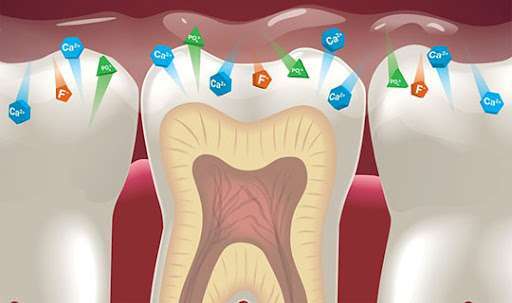
When it comes to keeping teeth strong and cavity-free, fluoride plays a vital role. This naturally occurring mineral has been called “nature’s cavity fighter” for good reason — it helps protect your enamel, prevents decay, and even reverses early stages of tooth damage. But how exactly does it work, and why is it so important?
How Exactly Does Fluoride Work?
Fluoride strengthens tooth enamel by helping it resist attacks from bacteria and acids in the mouth. Every day, minerals are lost from tooth enamel through demineralization, and fluoride helps replace them in a process called remineralization. This makes teeth more resistant to cavities and decay, even in people who may not have the best oral hygiene habits.
What Problems Could Result from Getting Too Little Fluoride?
Without enough fluoride, your teeth become more vulnerable to cavities and enamel erosion. Over time, this can lead to tooth sensitivity, decay, gum disease, and even tooth loss. Children, in particular, need the right amount of fluoride as their teeth develop to ensure long-term strength and durability.
Is It Important to Have Fluoride in Our Drinking Water?
Yes, and that’s why many communities add fluoride to public water supplies. Drinking fluoridated water provides constant, low-level exposure to fluoride, protecting teeth throughout the day. Studies have shown that communities with fluoridated water see significantly lower rates of tooth decay.
What Are Other Ways to Get Fluoride?
In addition to drinking water, fluoride is available in several other forms:
- Toothpaste and mouth rinses with fluoride are widely accessible and highly effective.
- Professional fluoride treatments at dental offices deliver stronger doses for those at higher risk of cavities.
- Supplements may be prescribed for children in areas without fluoridated water.
By combining these sources, you can ensure your teeth receive enough protection.
Is Fluoride in Drinking Water Safe?
Yes. Extensive research has confirmed that fluoride in public drinking water is both safe and effective. The levels are carefully regulated to provide dental benefits while avoiding excessive intake. Organizations such as the American Dental Association, World Health Organization, and Centers for Disease Control all endorse water fluoridation as a safe public health measure.
Conclusion
Fluoride is one of the most powerful tools in preventing cavities and maintaining strong, healthy teeth. From drinking water to toothpaste and professional treatments, this mineral plays an essential role in protecting your smile.
For expert dental care and personalized treatment in the Frisco area, contact Modern Bite Dentistry is a trusted clinic dedicated to keeping your teeth healthy and strong.


